A different kind of testing
Greg LeMond's appearance at Lance Armstrong's Las Vegas press conference at the end of September...
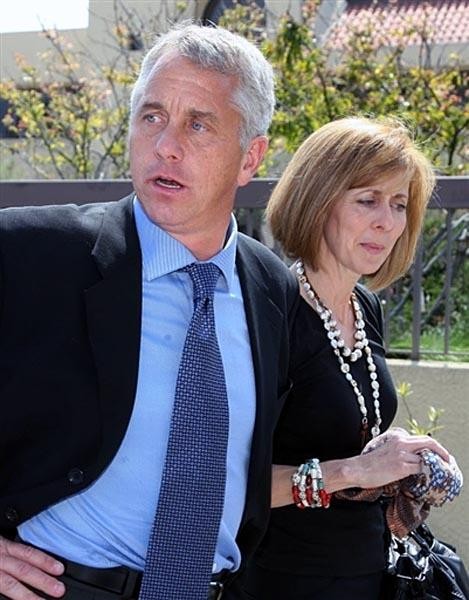
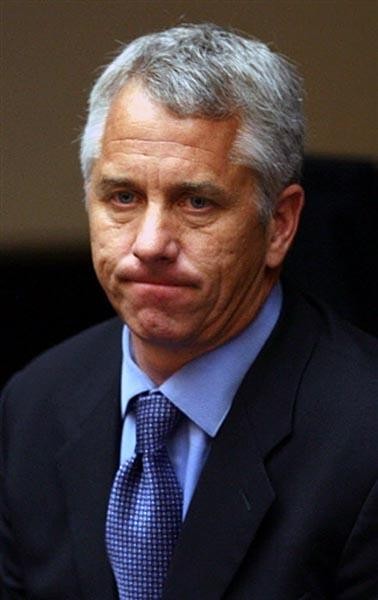
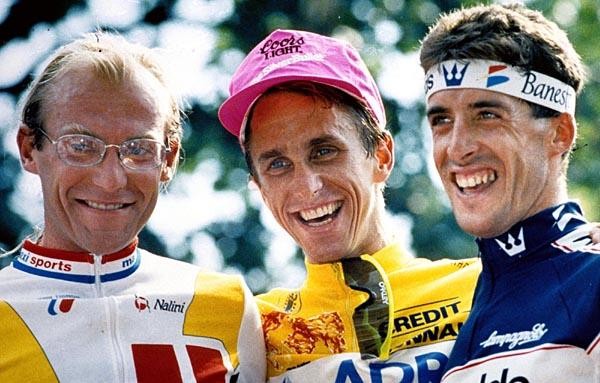
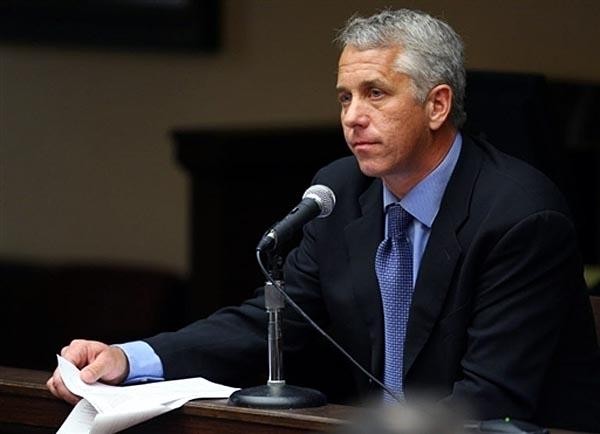
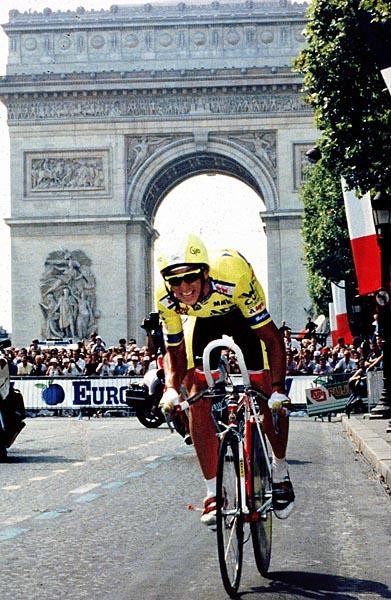





An interview with Greg LeMond, October 10, 2008
Greg LeMond's appearance at Lance Armstrong's Las Vegas press conference at the end of September made for some uncomfortable moments. Following the two American Tour winners' exchange, Procycling magazine's deputy editor, Ellis Bacon, caught up with LeMond to ask where he wants to see things go from here.
Anyone who witnessed Greg LeMond and Lance Armstrong facing each other at the Texan's press conference in Las Vegas wouldn't be able to help but form some sort of opinion. And whether it was a case of taking sides or simply realising that we are still a long way from resolving the sport's doping problems, it made for uncomfortable viewing.
"Greg, can I just step in for a second?" said Armstrong, after LeMond opened the questions with one to anti-doping expert Don Catlin of the Anti-Doping Research group. Catlin sat alongside Armstrong, and LeMond asked him whether he would consider testing for a rider's VO2 Max and power output on top of monitoring blood values. Catlin will test Armstrong's blood values and publish the results on the internet.
"I understand," Armstrong continued. "You'd like to make a show ... you've done your job. We're here to talk about a few things: the global cancer campaign, the comeback to cycling, and the credibility in and around that. It's time for us, everybody in this room, to move on. We're not going to go negative here. I appreciate you being here..."
And LeMond, having so far only addressed his questions to Catlin, began to respond. "Next question!" Armstrong interrupted. Later, LeMond addressed Catlin once more. "I almost wish we had a fourth seat up here," laughed Armstrong. "Greg, Greg, Greg... You know what, bud? We appreciate your feedback. Thank you..." And it was on to the next, more acceptable question.
Armstrong and LeMond have never seen eye to eye. Many at first thought, and still think, that it was a battle of American wills; that there was jealousy on three-time Tour champ LeMond's part towards Armstrong once he embarked on his seven-straight winning run.
The latest race content, interviews, features, reviews and expert buying guides, direct to your inbox!
LeMond's appearance in Las Vegas was not a surprise. He is a regular visitor to the annual Interbike trade show in his role as owner of the LeMond Fitness range of indoor exercise bikes – a company that is completely separate to his LeMond range of road bikes. LeMond's own-name brand of bicycles was bought by Trek in 1995.
The relationship has been rocky since the Trek-riding Armstrong started winning the Tour. LeMond quickly got the Texan's hackles up by criticising and questioning Armstrong's relationship with Dr. Michele Ferrari. Since then, Trek has seen LeMond's public outbursts as being detrimental to both the LeMond and Trek brands, and earlier this year Trek chose to end their relationship with LeMond and his bike brand. The litigation case is still pending.
But what was a surprise it was Armstrong's appearance at the Cross Vegas cyclo-cross event, and LeMond's decision to attend the Texan's press conference the next day.
An alternative testing method
"I was there because I just wanted to know more about Don Catlin's plans," explained LeMond, who had challenged Catlin and Armstrong's collaboration to make the results of Armstrong's blood values and testosterone/epitestosterone ratio public. LeMond said publishing the results on the internet was not enough. LeMond wants to see riders' VO2 Max results; he says power output is a much better gauge of whether a rider is doping. Following the tense press conference, LeMond and Catlin sat down together after Armstrong had left.
"I just hope that Don will look at that aspect of testing as well as 'traditional' testing," said LeMond. "If that could happen, that would be great. I have a lot of respect for Don, and told him that. I am just amazed by the lack of critical thinking from doctors, journalists... If anybody read half of what's out there about physiology and how you produce power in aerobic sports... It's very simple.
"It's all very well checking blood values," LeMond continued. "But if you're a smart doctor, you just always keep your rider's blood values high. EPO is only detectable within a few days, and that's why it's hard to detect it. Autologous blood transfusions, however, are not detectable at all – except through a carbon monoxide test, which is something [project co-ordinator of the Science and Industry Against Blood Doping] Michael Ashenden has proposed. It tests the volume of haemoglobin in the body, and can prove a positive for autologous blood transfusions. That's the kind of testing we must do, along with profiling athletes' natural oxygen intake and watts."
LeMond wants to see SRM-type power meters employed to measure riders' power outputs. "In SRMs, we have a quantitative way to do that, but unfortunately there have only been a few riders who have ever given out that personal information," bemoans LeMond. "I talked to [now former] ASO boss Patrice Clerc about having everyone on an SRM that's sealed. It would be controlled and calibrated by doctors, the police – but not the teams.
"You'd get a continuous output of power recorded during a Tour stage and then if you found someone who had a VO2 Max of 80 and he was doing 500 watts for 30 minutes, you'd know that that was statistically and mathematically impossible to do. So then he's positive – boom! – he's out – that's doping. That's it – it's simple."
When it comes to teams like Garmin-Chipotle, who are attempting, like Armstrong, to be transparent by employing their own anti-doping medical programme, LeMond both praises and criticises such efforts. "[Garmin boss] Jonathan Vaughters is doing a phenomenal job," says LeMond. "What they're doing is good, but really that testing has got to be done by an independent group, and not policed from inside. What good is self-policing? It's like a wolf guarding a hen house. You've got to have a group with no self-interest."
Independent testing
"It should be up to a group like WADA. The riders just want to know that they can trust the system – that's all. If a crime's a crime, you're going to get busted. Cycling is so black and white when it comes to watts and we can have that data now – it's not a mystery. Last year there were climbers doing 450 watts but weighing 58-60kg – that's nearly 8 watts per kilo. That's impossible – unless we've all had some kind of genetic mutation over the past 15 years.
"There are certain physiologists who could blow the sport apart," says LeMond. "But they all earn their living by the sport, too, so they have something to lose, so there's this omerta [code of silence - ed]. That's the thing about cycling – it has its chance to make itself clean, and that's the direction the Tour de France organisation was going in."
But with Patrice Clerc, the boss of ASO – the Amaury Sport Organisation, the organisers of the Tour de France – having recently been removed from his position, LeMond says that "we have just taken a huge step backwards.
"Armstrong can come back as many times as he wants – I don't care – but the old management of the Tour was really in the process of changing the sport. And something happened between they day they split with the UCI and now. It's not just that they thought that Patrice Clerc wasn't doing a good job. Something else got in between," LeMond said.
"And I've really decided that I'm walking away from professional cycling – period. I'm just not going to be a part of it," LeMond revealed. "I'm going to still be in the bike business, because I still love cycling, and I'll still go and do Gran Fondos. To me, cycling needs to be more about the purity and the fun and doing your personal best.
"Those Gran Fondos are great – you have a transponder and can come back every year and try to beat yourself. That's what I do love. I've been to one ride with my son and it was the best experience I've had. And that's why I went back to the Tour last year and said that I wanted to be involved, but that I've got to have it clean. I can't be bothered with a pro team unless I can look the sponsor in the eye and say that you can win it without drugs."
For LeMond, extra testing – a carbon monoxide test for autologous blood doping and measuring riders' power output – would provide the answers that the majority of people want. "Nobody's forcing anyone within the sport to race. But with such tests, if you wanted to compete, you'd have to do this. If you don't want to do a carbon monoxide test, go find another job."
